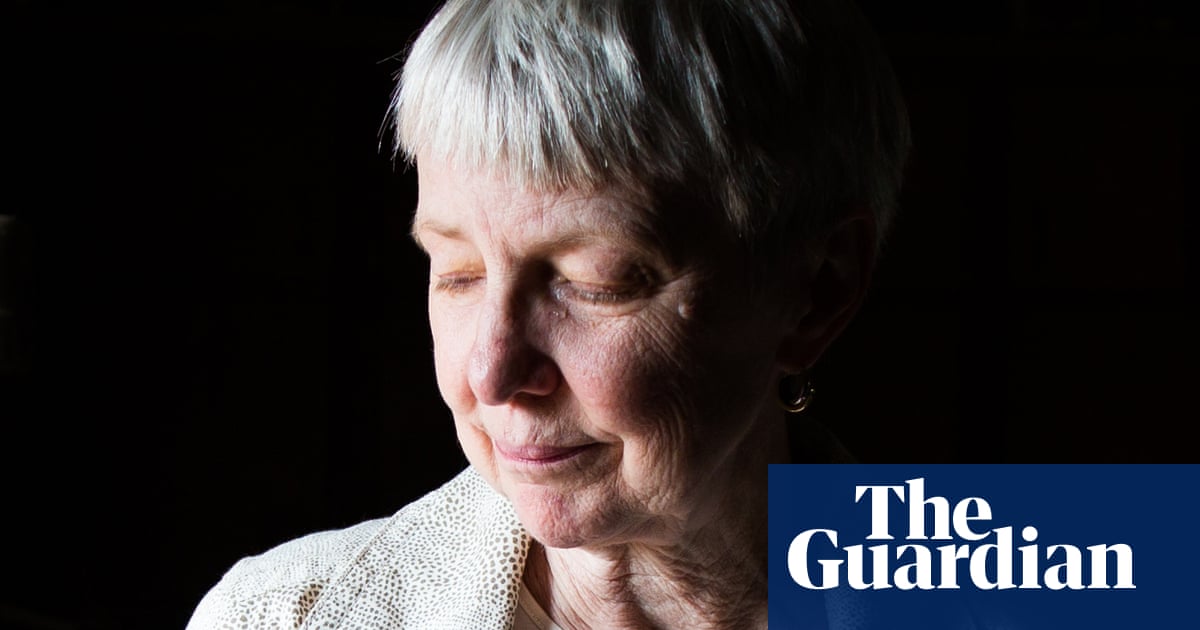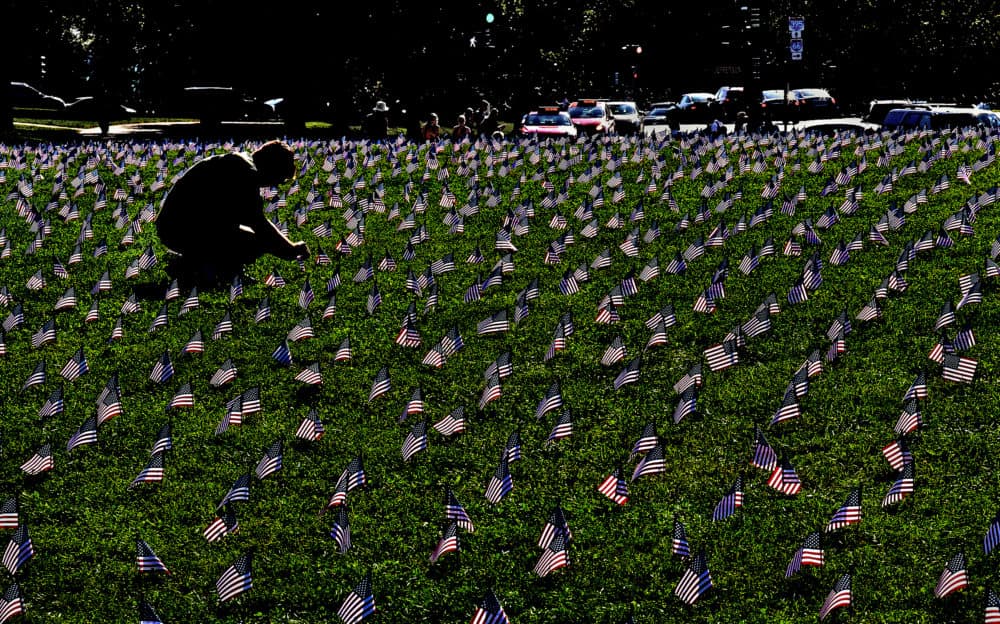The Poor in Spirit (Who can Write in Cursive)
Older adults comprise 12% of the population, yet they make up approximately 18% of suicides. And experts estimate that 90% of older adults who attempt suicide have untreated (or under-treated) depression.

Matt Peters, 55, was loving husband, father, and grandfather. Known for making people laugh, Matt's wife, Ginnie, says, "In everything he did, he wanted to be a giver and not a taker."
Matt was a farmer who worked hard and embraced new practices, but he often had trouble sleeping. Matt worried about the weather and how it affected his business.
On the morning of his last day on earth, Matt told Ginnie, "I can't think; I feel paralyzed."
When Matt didn't return home for dinner, and when he didn't answer his phone, Ginnie worried. Then she found the letter.
"My dearest love," it began.
Ginnie immediately called 9-1-1, but when authorities located Matt's truck, he had already taken his life.
The great philosopher, Sammy Davis, Jr., used to sing:
"Who can take tomorrow, dip it in a dream, separate the sorrow and collect up all the cream?"
Apparently "The Candy Man" can — but as for the rest of us, coping with sorrow, anxiety, and the disappointment of defunct dreams can be a real challenge.
— Atticus poetry
Suicide and Older Adults
According to Dr. Julie Rickard who runs the National Center for Suicide Survivors, the two groups of people who are particularly at risk for suicide are teens and senior citizens.
Older adults comprise just 12% of the population, yet they make up approximately 18% of suicides in the United States.
And "Older adults tend to plan suicide more carefully" says the website of the National Council on Aging. "They are also more likely to use more lethal methods."
Specifically, 1 in 200 youths who attempt suicide die, while 1 in 4 seniors do.
Complicating the matter, according to Dr. Rickard is that when older adults are depressed, they tend to experience memory issues which makes them less able to seek help for mental health matters.
Dr. Jerry Reed, who runs suicide prevention programs nationwide believes that more than 90% of older adults who attempt suicide have untreated (or under-treated) depression.
In fact, about 20% of people over the age of 55 experience some type of mental health concern.
Despair
Did you know that more veterans die by suicide than in combat?
But as tragic as that is, the suicide rate for farmers is more than double that of veterans. And experts warn that suicide deaths for farmers are undercounted because an unknown number of farmers disguise their suicides as farm accidents.
Another group at risk are those in longterm care facilities. For instance, two days after Christmas, alone in his room at the Bay at Burlington nursing home in Burlington, Wisconsin, Larry Anders killed himself.
Factors that contribute to depression in mature adults include:
- Feeling like a burden to others
- Financial troubles
- Chronic pain
- Losing loved ones
- Feeling alone
Hope
Many assume suicide among older adults is about escaping pain, however, Marilyn Mendoza, PhD, a clinical instructor at Tulane University Medical School who writes about mental health for Psychology Today says suicide among older adults is not about pain, but about hope.
“If they could push a button and end that pain, they wouldn’t kill themselves. But they are hopeless, and that’s what leads to suicide.”
It's an interesting point, isn't it? If people could end their pain, most would end it and press forward. It's when there seems to be no point, no hope of things being better, that thoughts go to the darkest corners.
Once Upon a Time, I Had Dreams
On the subject of hope and despair, I share the following with permission on condition of anonymity:
Once upon a time, I had dreams.
I used to dream of doing good in the world, and how fun it would be to use the gifts God has given me to quietly make a difference in people's lives — especially those who were really hurting.
In my dreams, my wife had this same vision, and we were trusted partners every step of the way. And although my dream-family would not be perfect, we'd be close, and always be there for each other in times of hardship.
I'm realizing that I don't have dreams anymore.
I just have hopes.
And my hopes are modest.
I hope I can fall asleep — and stay asleep — tonight. I hope that the injuries to my body, brain, and heart won't impair me too much tomorrow. And I guess I hope that people will know better than to believe false narratives about me.
But most of all, I hope I don't do something rash in a moment of despair.
Because I never want my kids or my grandkids to think that some things are an option when they are passing through hardships.
That last line has a desperateness to it that haunts me. He is holding on — not for his own life — but for his children and grandchildren.
He Knows the Way Out Because He Walked it
I am inspired by these excerpts from a talk by Elder Jeffrey R. Holland:
"Are you battling a demon of addiction — tobacco or drugs or gambling, or the pernicious contemporary plague of pornography? Is your marriage in trouble or your child in danger?"
"Do you — or someone you love — face disease or depression or death?"
"When He says to the poor in spirit, 'Come unto me,' He means He knows the way out and He knows the way up. He knows it because He has walked it. He knows the way because He is the way."
Please know that I am not saying that spirituality is the cure for depression and other mental health challenges.
I am simply saying please do not lose hope, but find help — for powers beyond our own are pulling for us and will guide us to a brighter day.
— Anonymous, Twitter
"Lord, I would follow Thee"
It’s easy to look at the struggles of others and think that they are somehow deserving of them.
But is judgment really what God wants from us in those moments?
“... for the Lord seeth not as man seeth; for man looketh on the outward appearance, but the Lord looketh on the heart.”— 1 Samuel 16:7
Promise yourself now that when (not if) you encounter someone who is poor in spirit, you will help him or her find "the Way" to peace, and not be yet another obstacle in their way.
Who am I to judge another
When I walk imperfectly?
In the quiet heart is hidden
Sorrow that the eye can’t see.
Who am I to judge another?
Lord, I would follow thee.
— Hymn #220: Lord, I Would Follow Thee (Text: Susan Evans McCloud, Music: K. Newell Dayley)
It is important to remember that the very first group Jesus spoke about in His Sermon on the Mount was "the poor in Spirit".
Broken people are Christ's first concern.
Shouldn't they be ours as well?
Please be good to each other.
And tell us in the comments how you think we can be supportive of older adults who are poor in spirit.
Thanks for listening. Gunalchéesh.
Links:




















